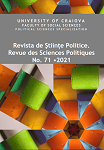Considerations on the material element of the objective side of the offense of “perjury” from the perspective of the witness
Considerations on the material element of the objective side of the offense of “perjury” from the perspective of the witness
Author(s): Georgeta-Raluca BudianăSubject(s): Criminal Law, Criminology, Court case
Published by: Editura Universitaria Craiova
Keywords: witness; perjury; essential aspects; self-incrimination;
Summary/Abstract: The witnesses’ depositions are important, as through the essential aspects which they know and are obliged to inform the judicial bodies about when they are asked, lead to establishing the truth and the fair solution of the case. The act of perjury, in a case where witnesses are heard, means not to tell the truth, to make accounts inconsistent with what the witness knew. It is important that the witness states what he knows, what he has directly perceived and not what is real (what he indirectly found out from other sources). The offense of “perjury” may be also committed through an inaction, respectively when the witness does not tell everything he knows about the essential facts or circumstances in respect of which he was asked. It is mandatory that the witness is asked about the essential circumstances which he reports. In the situation when the judicial bodies ask the witness about certain aspects and he refuses to answer, we consider that he should be charged with the offense of “perjury”. If a witness refuses to testify, when he does not want to report anything, we appreciate that also in this case he commits the crime of “perjury” because this attitude is equivalent to failing to provide any information. In order for him to be charged with the offense of perjury, it is important that the false statements or omissions relate to essential circumstances. The right of the witness not to incriminate himself shall oblige the judicial bodies not to use the statement given as a witness against that person, who has subsequently acquired the status of suspect or defendant in the same case. From the above considerations we conclude that the witnesses are obliged to report all the essential aspects which they were asked about. Also, as a measure to protect witnesses, the privilege against self-incrimination has been established according to which the witness's statement cannot be used against him for a future charge.
Journal: Revista de Științe Politice. Revue des Sciences Politiques
- Issue Year: 2021
- Issue No: 71
- Page Range: 111-120
- Page Count: 10
- Language: English

